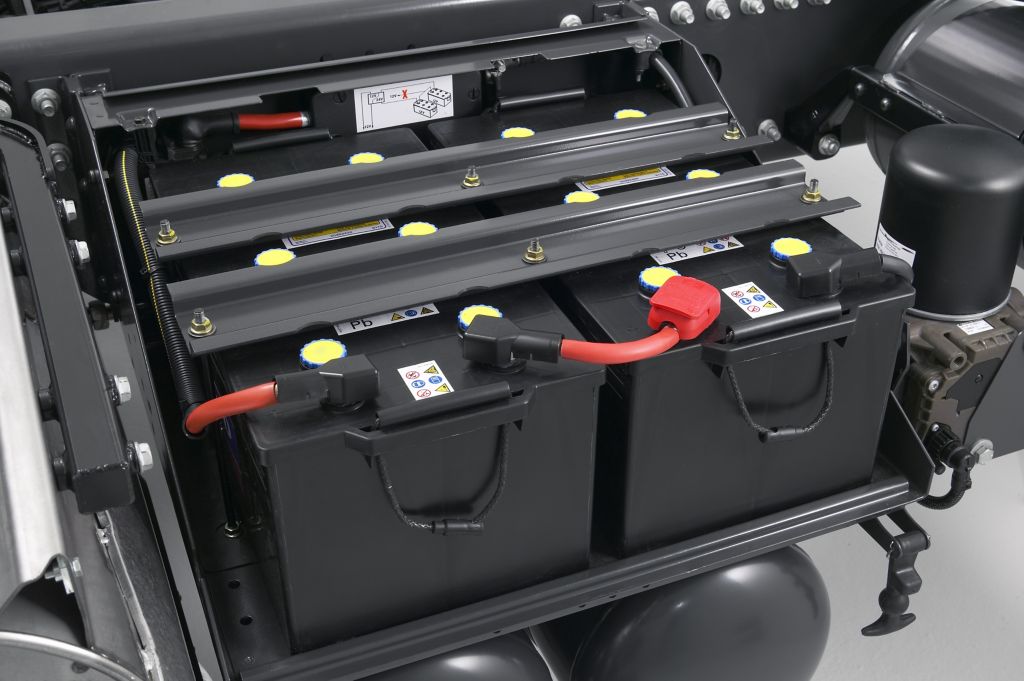Battery management systems: taking huge leaps forward


As witnessed during the 2025 EVS38 event, where we showcased some of our current research programs, a well-tuned, reactive BMS can make all the difference to an electric vehicle’s performance and its total cost of ownership.
While most people think of energy density as the key to unlocking longer range for zero emission vehicles (ZEVs), Volvo Group engineers are busy exploring a broad range of additional enabling factors, technologies and challenges that can make a significant difference to battery performance, longevity, and the reliability of onboard vehicle control systems.
To understand the nature of a BMS you need to have a clear overview of the myriads of use cases that electric trucks cover - the topography, ambient temperature, the route type (urban/rural/highway) and the availability of suitable charging infrastructure. And then, of course, there is the battery chemistry and design to consider.
By understanding the requirements of battery type and design, along with power conversion unit requirements for the many onboard systems (apart from the electric motor) and their interdependencies, you begin to see how complex and fascinating a BMS can be.
Safety-dependent functions
Everything from drive-by-wire, brake-by-wire and other vital safety-dependent functions require a consistent and secure source of power separate from that which drives the electric motor and propels the vehicle forward. At present, many of these functions are supported by lead acid batteries, while the main energy source for propulsion comes from large Li-ion battery packs. This will likely change in the near future as lead acid batteries are removed for environmental reasons, requiring a better way of using onboard energy sources with built-in redundancy to secure safety-relevant functions.
One solution currently being investigated is the use of hybrid batteries – a mixture of different types of batteries/cells each with different characteristics – which can be accessed in isolation or as part of the combined battery pack, depending upon the needs of the vehicle and its onboard systems.
Artificial Intelligence (AI), which is now being used in almost everything, will have an even more important role to play in BMS design going forward. Forecasting auxiliary energy requirements based on route planning and charging needs will help to add further confidence for operators that energy requirements for both the round trip and accessories will be safely met.
AI predicts performance
By using AI algorithms to better predict battery cell performance and taking a responsive reconfiguration approach that optimizes individual cell performance in order to balance load, state of charge, operating temperature and range requirements the BMS becomes a flexible and responsive system that makes the best use of the hardware and stored energy. By analyzing our customers’ daily operating range needs we can effectively ‘tune’ the operating window of the battery packs to ensure mission fulfillment, while safeguarding battery health and ultimately longevity.
Volvo Group engineers are using both physics-based and machine learning-assisted aging prediction and adaptive modelling to ensure that next generation battery management systems are ready to utilize the enhanced computational power we will see in the coming years.
By creating advanced battery management systems that are reactive, adaptive and generally ‘smart’, Volvo engineers are opening up the potential for custom hybrid battery pack solutions, fine-tuned for specific use requirements and simplifying eventual battery replacement at end of life (where the batteries will be then re-used in a second-life role for energy storage purposes).
Volvo Group’s use of advanced simulations based on real-world on-road data to test provides a clear picture of potential outcomes and therefore requirements which we can then set out to satisfy.
As with any technology, it improves over time. The beauty of Volvo Group’s approach to battery management systems is that much of these advances will be software-driven, allowing Volvo customers to update their BMS to achieve even better results over time.
So, while battery chemistry continues to evolve, so too do battery management systems, opening up a whole new way forward for zero emission transportation.
Read more about our approach to electrification here